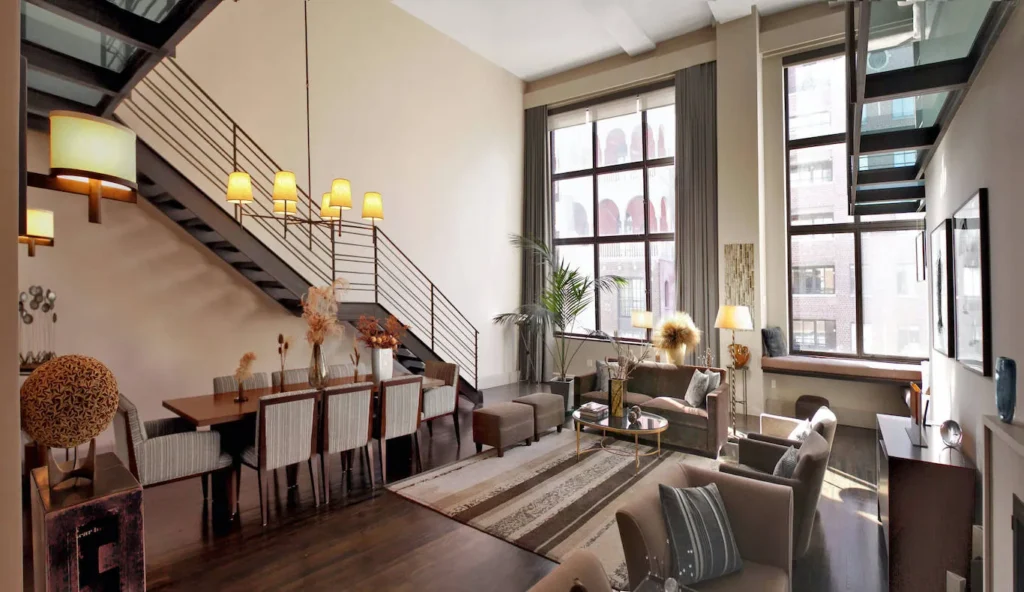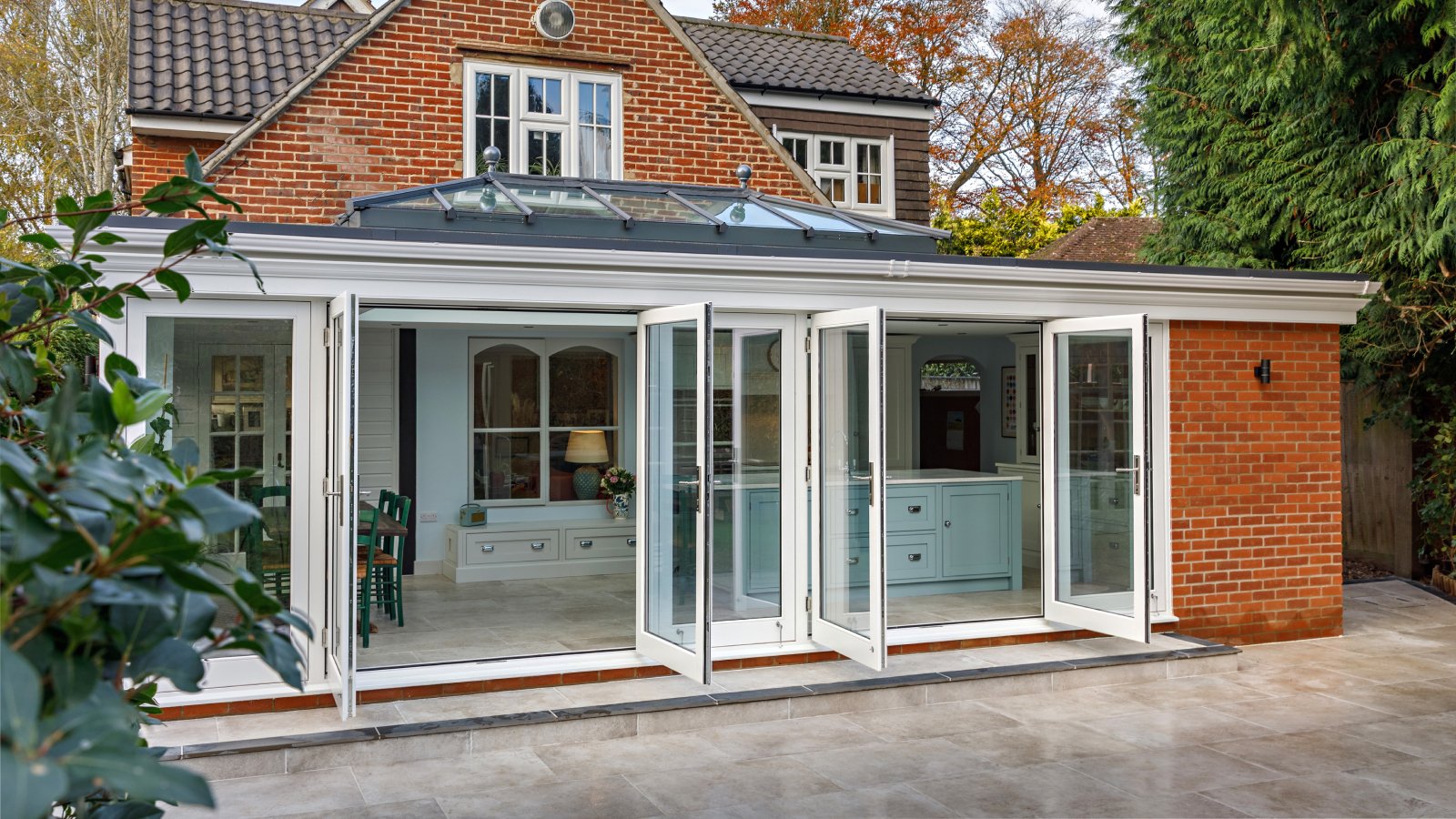Renovating your property is a crucial step in maintaining its value and attractiveness on the rental market. Whether you own a house or an apartment, undertaking renovations can transform your property into a comfortable and energy-efficient place to live. This article explores tips and tricks for successful renovation projects, taking into account various aspects, from planning to execution to budget.

Why renovate your property?
Renovating your property can be a wise decision for a variety of reasons. Whether you own a house or an apartment, investing in renovations can not only improve your quality of life but also bring many benefits to your rental property.
Improve the quality of life.
Renovating your property can significantly improve your quality of life. By modernizing your house or apartment, you create a more pleasant and functional space. This can include adding new features, renovating the kitchen or bathroom, improving insulation for greater thermal comfort, or creating an outdoor space. A better quality of life in your property can attract tenants and contribute to long-term rental agreements.
Increase the value of your property.y
Renovating your property can significantly increase its value. When your property is in good condition and meets current standards, you can charge a higher rent. Additionally, if you sell a renovated property can fetch a higher price and attract more potential buyers.
Reduce maintenance costs
Renovations also allow you to prevent future maintenance costs. By investing in modernizing your property, you can reduce the need for frequent repairs. This can help reduce long-term maintenance costs and increase the profitability of your rental property.
Compliance with energy standards
Energy renovation is particularly important these days. Energy-efficient properties are more attractive to tenants who are conscious of their environmental footprint. By carrying out energy renovation work, such as improved insulation, window replacement, or installing an efficient heating system, you can reduce energy costs for the tenant and increase the value of your property.
Attracting quality tenants
A well-renovated property generally attracts higher-quality tenants. Tenants seek out homes that are in good condition and offer modern amenities. By investing in renovations, you can attract reliable and creditworthy tenants, reducing the risk of unpaid rent or significant damage.
Compliance with the co-ownership
If your property is located in a condominium, it is essential to maintain compliance with the condominium rules. Well-planned and executed renovations can contribute to this compliance and better understanding with other co-owners.
Prepare well for the renovation of your property
Make a detailed plan
The first step in any renovation project is planning. Clearly define your goals and what you want to achieve with the renovation. Make a list of the work to be done, prioritizing it. A well-developed plan will prevent unnecessary expenses and keep you focused on your goals.
Evaluate your budget
One of the most critical aspects of a successful renovation is budget management. Carefully assess potential costs, including materials, labor, and contingencies. It’s recommended to include a safety margin in your budget to cover potential surprises. To finance your renovations, explore options such as renovation loans or government grants.
Choose materials carefully
Choosing the right materials is essential for the quality and aesthetics of your renovation. Opt for durable and energy-efficient materials to reduce long-term costs. Don’t hesitate to seek advice from professionals or renovation experts to help you choose the best materials for your project.
Consider energy aspects
In today’s climate of environmental concerns, energy efficiency is a key factor. Renovations can include improving insulation, replacing windows with energy-efficient models, or installing more efficient heating and cooling systems. These improvements will not only reduce your utility costs but also make your property more attractive to environmentally conscious tenants.
Respect the rules of the co-ownership
If your property is located in a condominium, be sure to follow the condominium’s rules and regulations when carrying out renovations. Obtain the necessary permits and inform your neighbors of upcoming work to avoid any disputes.
Call on professionals
Renovating can be complex and demanding. Hiring qualified professionals, such as building contractors, architects, or interior designers, can ensure the work is done correctly. Their skills and expertise can help increase the value of your property.
Pay attention to the aesthetic aspect.t
The aesthetics of your property are essential factors in attracting tenants. Choose finishes and colors that appeal to a wide range of audiences. Well-designed spaces, a modern kitchen, and an attractive bathroom can make all the difference.
Renovating your property can be costly, but there are several financial grants and incentives available to help you complete your renovation projects. Whether you own a house or an apartment, it’s worth exploring these options to ease the financial burden while improving the value of your property.
What assistance is available for renovating your property?
Zero-rate loan (PTZ)
The PTZ is an interest-free loan granted to homeowners undertaking energy renovation work. It can be used to finance projects such as insulation, window replacement, or the installation of a more energy-efficient heating system.
Tax credit for energy transition (CITE)
The CITE allows you to deduct a portion of your energy renovation expenses from your income tax. It generally covers a range of work aimed at improving the energy performance of your property, such as insulation, window replacement, or upgrading your heating system.
Zero-Rate Eco-Loan (eco-PTZ)
The eco-PTZ is an interest-free loan for homeowners wishing to carry out energy renovation work. It allows them to finance this work interest-free. Eligibility conditions vary depending on the type of work.
Local aid
Many municipalities offer grants and incentives to encourage homeowners to renovate their properties. It is recommended that you check with your local council to find out what programs are available in your area.
Research tax credit (CIR)
If you are carrying out research work for the renovation of your property, you may be eligible for the CIR (Renovation Tax Credit). This is a tax credit designed to encourage research and innovation in the field of renovation.
Assistance from the National Housing Agency (ANAH)
Anah offers several programs for home renovations in France. Anah grants cover a wide range of projects, including thermal renovations, adaptations for people with disabilities, and home improvements.
Tax exemption scheme
Certain tax relief schemes, such as the Pinel scheme, can offer tax benefits to owners who renovate properties intended for rental.
It’s important to note that the eligibility requirements and amounts of these grants may vary depending on the nature of the work and the owner’s situation. It’s recommended that you contact the relevant organizations and consult a renovation advisor to determine the best options available for your renovation project. By combining these grants and carefully planning your work, you can improve your property while staying within your budget.
In conclusion, successfully renovating your property is a process that requires time, planning, and resources. By following these tips and tricks, you can improve the value of your property, attract quality tenants, and maximize your real estate investment. Remember, the key to success lies in careful planning and professional execution.





